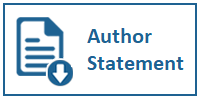CodeGuardians: A Gamified Learning for Enhancing Secure Coding Practices with AI-Driven Feedback
DOI:
https://doi.org/10.31937/si.v15i2.3858Abstract
This paper introduces CodeGuardians, a gamified platform designed to improve secure coding practices using AI-driven, real-time feedback. The platform focuses on key secure coding concepts, such as input validation, authentication, session management, and cryptography. Developed using the ADDIE (Analyze, Design, Develop, Implement, and Evaluate) instructional model, CodeGuardians enhances engagement and knowledge retention by incorporating interactive challenges. The AI component, powered by OpenAI, provides adaptive feedback on user-submitted code, helping users to learn secure coding practices more effectively. To assess its impact, a one-group pretest-posttest design was conducted. The results of a paired sample t-test showed a significant improvement in secure coding knowledge (t = 19.50, p = 0.048), confirming the platform's effectiveness. In addition, the system's usability was rated highly, with a score of 0.93 on the Computer System Usability Questionnaire (CSUQ), classifying it as "Very Good." The practical implications of this research suggest that CodeGuardians could be implemented in both educational and professional settings to enhance secure coding skills and reduce software vulnerabilities. From a theoretical standpoint, this study advances cybersecurity education by integrating AI-driven feedback into gamified learning environments. The research supports the theory that gamification improves engagement and learning retention, while also highlighting the value of adaptive technologies in addressing real-world security challenges. Future work will examine the long-term retention of knowledge and scalability across diverse learning environments.
Downloads
Downloads
Published
How to Cite
Issue
Section
License
Authors retain copyright and grant the journal right of first publication with the work simultaneously licensed under a Creative Commons Attribution-ShareAlike International License (CC-BY-SA 4.0) that allows others to share the work with an acknowledgement of the work's authorship and initial publication in this journal.
Authors are able to enter into separate, additional contractual arrangements for the non-exclusive distribution of the journal's published version of the work (e.g., post it to an institutional repository or publish it in a book), with an acknowledgement of its initial publication in this journal.
Copyright without Restrictions
The journal allows the author(s) to hold the copyright without restrictions and will retain publishing rights without restrictions.
The submitted papers are assumed to contain no proprietary material unprotected by patent or patent application; responsibility for technical content and for protection of proprietary material rests solely with the author(s) and their organizations and is not the responsibility of the ULTIMA InfoSys or its Editorial Staff. The main (first/corresponding) author is responsible for ensuring that the article has been seen and approved by all the other authors. It is the responsibility of the author to obtain all necessary copyright release permissions for the use of any copyrighted materials in the manuscript prior to the submission.















